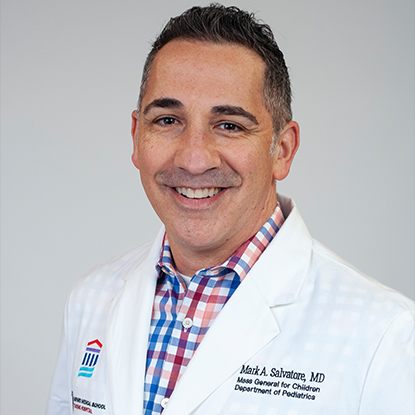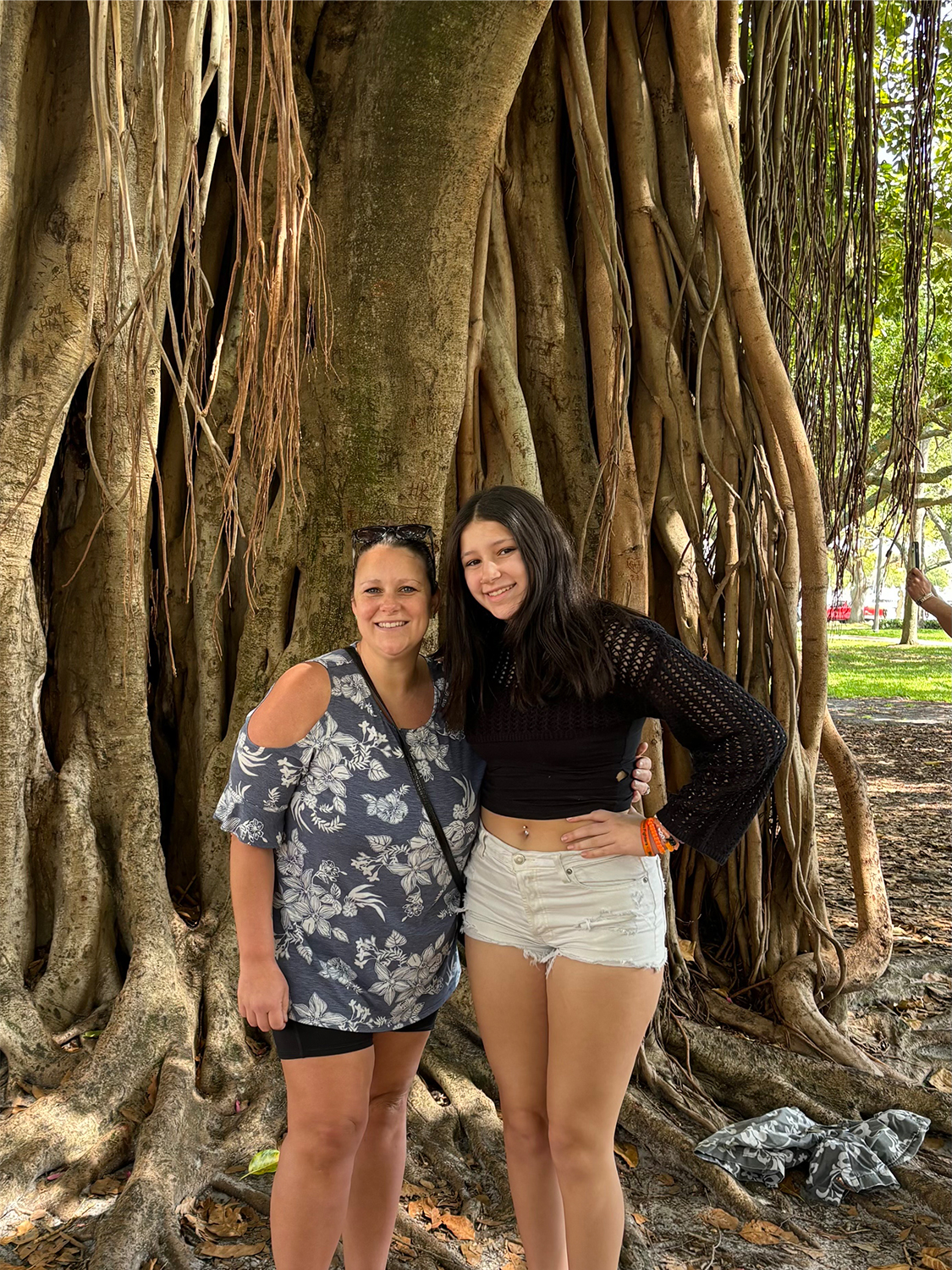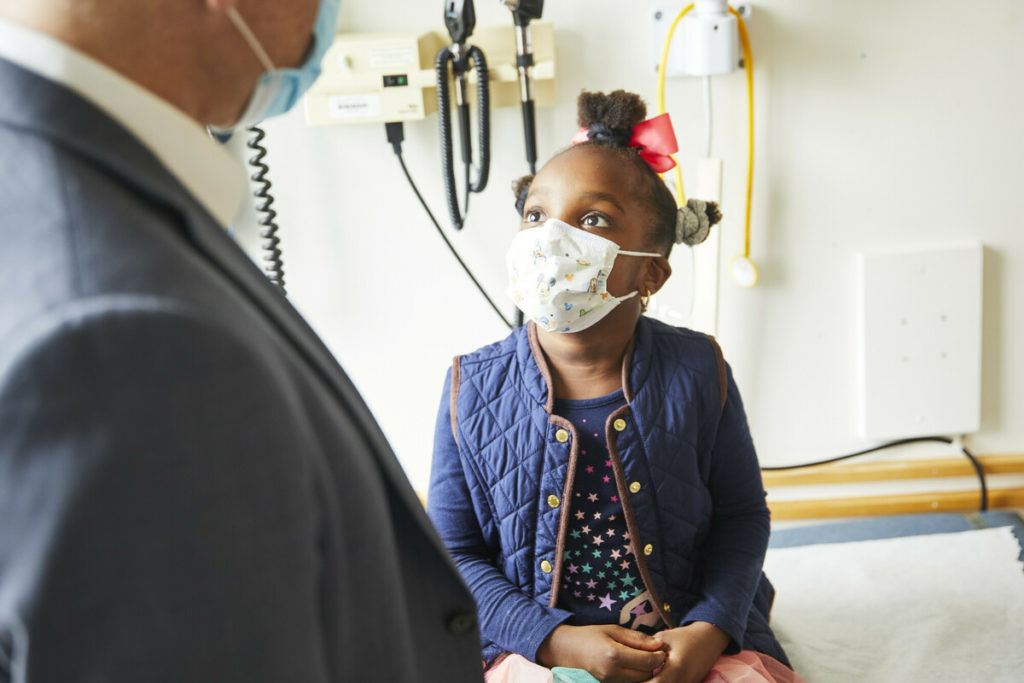A gut feeling is hard to ignore; that sinking sensation in your stomach often signals something deeper. For 17-year-old Gabby, however, gut feelings turned into something far more serious — chronic, debilitating gastrointestinal (GI) pain that lasted throughout her childhood.
“For 10 years, I was in too much pain to eat lunch at school,” says Gabby. “I saw so many doctors, but nobody was listening to me.”
In the Pediatric Mind-Body Medicine (PMBM) Program at Mass General Brigham for Children, experts navigate the powerful connection between gut health and mental and emotional well-being. They develop personalized treatment plans combining medical and psychological care for children, teens and young adults suffering from chronic GI issues.
Founded in 2018, the PMBM Program is one of the first in the country to take this integrated approach. The mind-body medicine model recognizes stress and mental health as major contributors to chronic physical health symptoms. By treating the GI system and the mind in tandem, patients often experience significant relief, even after enduring years of unresolved symptoms.
“The gut and brain are in constant conversation,” says Mark Salvatore, MD, MS, pediatric gastroenterologist and founder of the PMBM Program. “When we treat them together, that’s when true healing begins.”
Taking Time to Build Trust
A hallmark of the PMBM Program is extended time with providers. New patients are evaluated by both Dr. Salvatore and program co-director and psychologist, Sarah Shea, PhD. Because these in-depth evaluations last significantly longer than typical visits, they also cost more — but philanthropy helps cover the gap between insurance reimbursements and the actual cost of the visits. Follow-up appointments are also extended, giving families more time with their care team.
“Dr. Salvatore was the first doctor to say it wasn’t just all in my head. I trusted him to help me figure this out.”
“As most patients of the PMBM Program are adolescents and young adults seeking a second, third or even fourth opinion, Dr. Shea and I want to ensure every patient feels seen, heard and understood,” Dr. Salvatore says. “Spending this extra time with patients and families is essential for building trust and forming collaborative relationships — the foundation of whole-person, patient-centered care.”
As teenagers navigate the complexities of puberty and the pressures of high school, they may experience anxiety, depression or post-traumatic stress. What begins as a childhood stomachache can evolve into a chronic, debilitating condition. Healing starts by acknowledging this powerful connection between emotional and physical health — and removing the stigma surrounding it.
Mind (and Body) Over Matter
Drs. Salvatore and Shea employ a myriad of evidence-based mind-body interventions such as biofeedback, gut-directed hypnotherapy and cognitive behavioral therapy, as well as self-care practices such as meditation, exercise and healthy sleep habits to combat chronic stress and promote a nervous system relaxation response in their patients.

By promoting the relaxation response, mind-body interventions create a buffer against cortisol, the stress hormone which activates the “fight or flight” response. In this heightened state, blood routes toward the heart and away from the GI system, disrupting digestion and gut health. For people experiencing chronic stress, this can have serious long-term effects.
For Gabby, a combination of medication and mind-body practices has changed her life. Three years after becoming a patient in the PMBM Program, she lives virtually symptom-free.
“Dr. Salvatore was the first doctor to say it wasn’t just all in my head,” she says. “I trusted him to help me figure this out.”
Healing and Hope
As interest in pediatric mind-body medicine grows, Dr. Salvatore is leveraging a $125,000 matching grant from an anonymous foundation to reach more patients and recruit new clinical specialties to his care team, including a trauma psychologist, school liaison and nutritionist. The program’s expansion will meet the rising need of pediatric patients suffering from chronic GI symptoms as rates of youth mental illness continue to climb at an unprecedented rate.
Gabby’s journey with the PMBM Program has changed the trajectory of more than her health. After working with Dr. Salvatore, she knew she wanted to pursue a career in medicine and make this same impact on the lives of others. She now plans to go to college to become a neurosurgeon, tackling the link between the mind and body from another angle.
“Dr. Salvatore and the PMBM Program saved my life,” says Gabby. “Everyone deserves this kind of care and experience.”
To donate to the Pediatric Mind-Body Medicine Program at Mass General Brigham for Children, click here.




